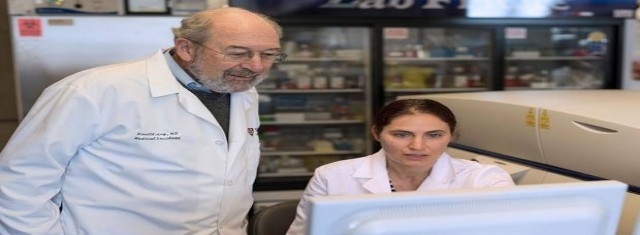Technology
A Cancer Vaccine Cured 97% of Tumors in Mice
Gene News

Cover of the issue
USPA NEWS -
A promising new cancer "vaccine" that cured up to 97 percent of tumors in mice will soon be tested in humans for the first time “” but experts say that we're still a long way off from this type of drug being prescribed to cancer patients.
Researchers from Stanford University will test the therapy in about 35 people with lymphoma by the end of the year, according to SFGate, a local news outlet in San Francisco. The treatment stimulates the body's immune system to attack cancer cells. In studies in mice with various cancers “” including lymphoma, breast cancer and colon cancer “” the treatment eliminated cancer tumors in 87 out of 90 mice, even when the tumors had spread to other parts of the body, the researchers said.
In a study that was published Jan. 31 in the journal Science Translational Medicine, scientists gave the treatment to mice that were genetically engineered to develop breast cancer in all 10 of their mammary pads. The drug was injected into the first tumor that appeared in the animal, and the researchers found that the treatment also prevented the occurrence of future tumors in many cases, the researchers said.
The new treatment works by reactivating these T cells. Researchers inject the "vaccine" directly into the tumor. The two agents in the treatment work synergistically in activating the T cells. Because these T cells were already inside the tumors, they have essentially been "prescreened" by the body to recognize cancer-specific proteins, the researchers said.
In the animal studies, injecting the treatment into just one tumor worked to eliminate tumors in other parts of the body (so-called metastatic cancers). This occurs because active T cells migrate to other parts of the body and destroy tumors that have spread.
In the animal studies, injecting the treatment into just one tumor worked to eliminate tumors in other parts of the body (so-called metastatic cancers). This occurs because active T cells migrate to other parts of the body and destroy tumors that have spread.
more information: https://https://med.stanford.edu/news/all-news/2018/01/cancer-vaccine-eliminates-tumors-in-mice.html
Liability for this article lies with the author, who also holds the copyright. Editorial content from USPA may be quoted on other websites as long as the quote comprises no more than 5% of the entire text, is marked as such and the source is named (via hyperlink).





